|
Welcome to the newsletter of Big Closets Small Planet - the podcast exploring what it will take to transform the fashion and apparel industry so that it contributes positively to the lives of people and the health of the planet.
Join host Michael Schragger as he examines the problems facing the industry and the strategies and solutions that are required to change it. Listen in as he talks with experts and colleagues - the business leaders, activists, researchers, innovators and entrepreneurs, investors, legislators, consumers and citizens - inspiring people who are racing against the clock to develop and implement more sustainable solutions.
In the final episode this year, we look at the impact of the fashion industry on forests and in turn climate change and biodiversity.
Stay tuned for more episodes in 2021, and happy holidays!
|
|

|
HOT OFF THE PRESS: Fashion is endangering our forests. A new report from Canopy weighs in on what we need to do about it.
Forests play a crucial role in promoting biodiversity, removing carbon dioxide from the atmosphere and supporting livelihoods, especially in poorer countries. But because wood is the basis for so many of our products, the pressure to exploit forests, usually in unsustainable ways, continues to increase. What does this have to do with the fashion industry? A significant percentage of the fibres used in fashion come from wood, and the market for wood based textile fibres is expected to grow. Our industry may therefore be indirectly contributing to the unsustainable management and even destruction of our remaining forests. In this episode, Mike speaks with Nicole Rycroft, Founder and Executive Director of Canopy, an NGO that works with the forest industry's biggest customers and their suppliers to develop business solutions that protect our last frontier forests, and Robert van de Kerkhof, Chief Commercial Officer at Lenzing. Using two recent reports released by Canopy as a point of departure, Nicole and Robert explain why forests are crucial for our survival, what brands and viscose producers can and should be doing to protect them, what next generation innovations are needed and what it will cost to transform viscose supply chains by 2030.
|
|
|
|
"The Big Closets Small Planet podcast always manages to find engaging speakers on truly interesting topics in the sustainable fashion space. The quality of content is very high. The only problem I have is I can''t mentally switch off while listening too them in case I miss something! They aren''t podcasts for zoning out to.
Michael is a warm and engaging host, allowing flow where it helps and keeping things snappy when needed. If you want to broaden your knowledge of developments in sustainable fashion, listen to this podcast. You won''t be disappointed." - Sam Gillick-Daniels, Senior Analyst, WRAP
|
|
|
|
Help us rate Big Closets Small Planet!
Do you like the podcast series? If so, we would be grateful if you could take just a few minutes to give us a rating on Apple Podcast or the podcast platform of your choice. This will help us spread the word. For Apple Podcast, simply scroll down to Ratings & Reviews, rate the podcast by tapping on the appropriate number of stars, and leave a short comment in the Write a Review section. Also, if you have tips for improving the podcast, or special topics or interviewees you would like to hear from, let us know by emailing us at bigclosets@sustainablefashionacademy.org!
|
|
|
|
Check out the other available pocast episodes:
|
|
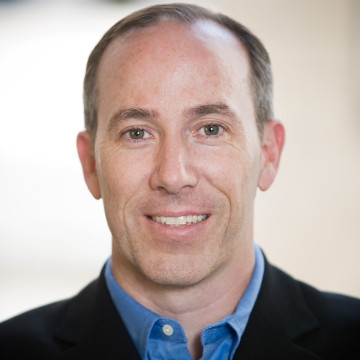
|
HOT OFF THE PRESS: Are the Sustainable Apparel Coalition and the HIGG tools making a meaningful difference? A new report weighs in.
It's been nearly a decade since Patagonia, Walmart and a number of other brands, retailers, manufacturers and NGOs established the Sustainable Apparel Coalition (SAC), an innovative industry collaboration. As the coalition's website states, its vision is "an apparel, footwear, and textiles industry that produces no unnecessary environmental harm and has a positive impact on the people and communities associated with its activities". In turn, members must commit to measuring and improving their social and environmental sustainability impacts, using the HIGG Index suite of measurement and management tools. A significant amount of resources and hard work has been invested in the SAC, so it is appropriate to discuss and constructively debate whether, after nearly a decade, the coalition's tools and overall work are making a meaningful difference. In this episode Michael speaks with Dara O'Rourke, associate professor at the University of California, Berkeley, and co-author of a report assessing whether the SAC's Facilities Environmental Model (FEM) and the act of standardising, measuring and reporting has resulted in meaningful improvements. Dara presents what he sees as the strengths and weaknesses of the FEM and explains the report's recommendations for increasing the SAC's impact. On top of this, Dara and Mike talk consumer psychology and communication, data, the limits of voluntary industry standards and monitoring, and why there are no silver bullets. The report can be found here: https://osf.io/preprints/socarxiv/g67d8/.
|
|
|

|
DEBATE: Part 2 - A proposed Swedish chemical tax on textiles - is this a case study in great government leadership or political greenwash?
In Part 2 of this episode, Michael speaks with experts who are positive to the proposed tax. We hear from Therese Jacobsson, Head of Ocean, Water & Toxics at the Swedish Society of Nature Conservation (a well established Swedish NGO), and two researchers who participated in the proposed tax advisory group: Daniel Slunge, an environmental economist at the Gothenburg Centre for Sustainable Development and the FRAM Centre for Future chemical Risk Assessment and Management, and ?ke Bergman, a professor at Stockholm University and highly respected environmental chemist. Unfortunately the politicians and political parties supporting the proposal did not respond to our request for comment. Given we need bold and smart government leadership more than ever, we think this is an excellent case study for exploring what good government leadership can look like as well as which government actions can be problematic.
|
|
|

|
DEBATE: Part 1 - A proposed Swedish chemical tax on textiles - is this a case study in great government leadership or political greenwash?
Sweden has a reputation for being a sustainability leader in many areas, so you can imagine how curious we were to learn about a newish proposal from the current Swedish government for a chemical tax on textiles. The proposal was recently made available to stakeholders for comment, and of course, a robust debate has ensued. Is this proposal, as presented today, going to lead to a reduction in harmful chemicals in Sweden and globally? Or is it a smoke screen for a government that is looking for ways to raise revenues for its national budget? And is the proposal a done deal, given the political parties agreed to this ahead of time when forming a government? In Part 1 of this episode, Michael speaks first with textile industry representatives to hear why they think the proposed tax is very problematic. You will hear from J?r?me Pero, Secretary General for the Federation of the European Sporting Goods Industry, Magnus Nikkarinen, Senior Policy Director in Sustainability at the Swedish Trade Federation, Mikael Larsson, researcher at the RISE Research Institute in Sweden, Eliina Brinkberg, Environmental Manager from Nudie Jeans Co. and Anna-Karin Dahlberg, Head of Sustainability at Lindex. In Part 2 you will hear from actors and experts who are more positive to the proposed chemical tax. Given we need bold and smart government leadership more than ever, we think this is an excellent case study for exploring what good government leadership can look like as well as which government actions can be problematic.
|
|
|
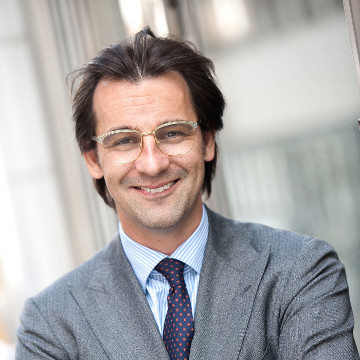
|
THOUGHT LEADERSHIP: Sustainable investment expert Sasja Beslik thinks the fashion industry is a very poor performer and possibly a stranded asset.
Sasja Beslik, Head of Sustainable Finance Development at J Safra Sarasin, fled Bosnia when he was 18 to escape the war. He ended up in Sweden and today spends his time leveraging the power of the financial sector to improve the world. He is particularly interested in the fashion industry's impact on people and has recently attracted attention for his calculations showing that a well-known fashion brand could afford to pay living wages to garment workers by increasing the prices on their clothes by only a few cents. In this interview Sasja weighs in on the apparel industry's sustainability performance and - spoiler alert - he comes down very hard on the industry. Sasja and Mike cover a range of topics, including the strengths, weaknesses and greenwashing of the sustainable investment industry in general, why he thinks apparel brands should be more directly responsible for paying living wages to factory workers, why a t-shirt should be more expensive, and why, despite it all, the fashion industry is still worth investing in.
|
|
|
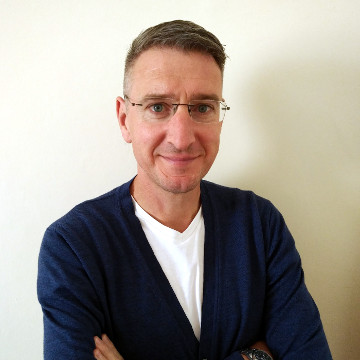
|
MAKE YOUR CASE: Phil Patterson believes the way we use chemicals in the textiles industry is broken and here is his plan to change it!
Phil Patterson, Managing Director at Colour Connections, has been working at the intersection between the textile industry and influential retail brands for over twenty years, and after some recent soul-searching he had an epiphany. He has come to the conclusion that the current way we use and dispose of chemicals is extremely wasteful and will not achieve the environmental and health improvements we are aiming for. During this episode, Phil outlines his arguments for why we need to move from the current single use, linear buy-use-dump model for chemical use to a circular model, and he explains what this new model should entail. Key success factors in his proposal include making the chemical user responsible for the chemicals they use and a suggestion that a move to 'Zero Liquid Discharge', where no waste water discharge from wet processors is allowed, should be mandatory throughout the industry. Phil makes his case. What do you think?
Phil Patterson's opinion does not reflect the official position of Big Closets Small Planet, or that of our supporting partners.
|
|
|

|
FACT OR FICTION: Alden Wicker and Sandra Roos think the fashion industry has a misinformation problem... do you agree?
In this episode we continue to explore the most commonly repeated "factoids" in fashion and sustainability in order to determine whether they are substantive and useful. As a reminder, a "factoid" is information that is reported and repeated so often that it becomes accepted as fact. During Stockholm Fashion Week, Mike spoke with Alden Wicker, freelance journalist and founder of Eco-cult and Sandra Roos, Head of Sustainability at KappAhl and PhD in Environmental Systems Analysis, about commonly used social and environmental statements related to the fashion industry and if they are based on credible research and robust analysis. They then dive deeper to discuss whether fashion has a broader problem with misinformation regarding sustainability, the role of fashion journalists and fashion researchers in promoting misinformation, and what could be done moving forward to ensure robust and credible information is used when presenting the status of sustainability performance in fashion. This interview was inspired by an article written by Alden for Vox.
This interview was hosted in collaboration with Stockholm Fashion Week.
|
|
|
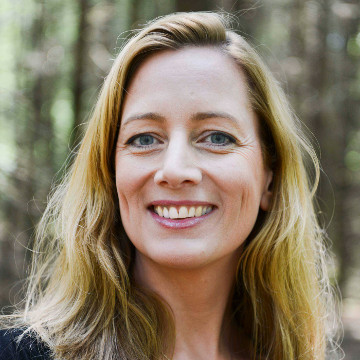
|
|
THOUGHT LEADERSHIP: Femke Groothuis argues that tax reform is the best way to transform the apparel industry at the scale and pace required.
You''ve heard it before: The global environmental challenges we face are daunting and time sensitive. If we want to avoid catastrophic tipping points, we need to move quickly and ambitiously. If we want to achieve the Sustainable Development Goals (SDGs) we need to invest trillions of dollars. And so we scratch our heads and wonder if the actions we are currently taking are meaningful. We wonder if we must choose between economic development, job creation and the environment. And we cannot help but feel that even though our intentions are good, our actions amount to the equivalent of moving the deck chairs on a sinking ship. But what if there is a way to accelerate change at the pace we need, and create benefits for people and the planet? And what if the way to get there is by leveraging our tax system as a tool for transformative change? Most people like to stay away from tax, either because it''s unsexy, too complicated, or punitive. But tax policy is the fundamental way we steer our nations and fund our public services. So what can tax policy, and tax reform do for the apparel industry? In this episode Michael talks with Femke Groothuis from the think tank Ex''tax about the potential power of tax reform to change the apparel industry. Femke explains both the theory and practice of green tax reform, and presents the results from recent case studies applying these principles in both high income countries in the European Union and Bangladesh. One of her key messages is that if countries use tax reform effectively, they will not have to choose between economic development and the environment. And this perspective has gained even more relevance since the Covid-19 induced economic crisis has put domestic revenues, jobs and sustainable growth at the top of the priority list worldwide.
|
|
|
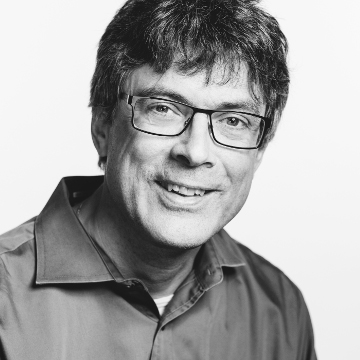
|
|
LEADING CHANGE: What can a new psychology of climate action teach us about being better change agents?
As a listener of Big Closets Small Planet, you are likely interested and engaged in changing the apparel industry. So for those of you who are keen to strengthen your change agent skills, we are introducing a new segment called Leading Change. In this first episode we are joined by Per Espen Stoknes who is that rare combination of thinker and doer. He is a psychologist, economist, politician, and the author of "What We Think About When We Try Not To Think About Global Warming". In conversation with Mike, Per Espen illustrates how psychological research helps explain why we do so little when we know so much, and how we can harness this research to find better solutions for driving change. We cover a broad range of issues, including the five psychological barriers to climate action, concrete solutions to overcome these barriers, Per Espen's surprising analysis of Greta Thunberg's strengths and weaknesses as a change agent and why we as change agents should stand up for our depression - even if being sad about the state of the world can feel counterproductive. Tune in to get inspired and receive concrete tips on how to be a better change agent!
|
|
|

|
|
INDUSTRY UPDATE: Circular business models, like clothing resale and subscription rental, are taking off - but can they ever fully replace today''s retail models and deliver the radical sustainability improvements we need?
Experts and practitioners agree that simply improving upon today's take-make-waste linear business models will not ensure the apparel industry can operate within the planet's ecological boundaries. Instead, a new circular economy is needed and thus new circular business models. Circular business models, like resale and rental, are not actually new. But up until a few years ago, models like these were marginal, primarily employed by second hand stores and charity shops. How things have changed! Today, nearly every major brand has a circularity department working to develop and test these circular models as a means to increase their market share, profitability and sustainability performance. So is this the radical breakthrough we have all been waiting for? And will these models, if scaled, deliver the environmental and social benefits advocates are promoting? To get updated, Michael invited three industry pioneers - Gwen Cunningham, Lead of Circle Economy''s Textile Programme and Switching Gear Project, Jeff Denby, co-founder of The Renewal Workshop, and Sam Gillick-Daniels from WRAP (The Waste and Resources Action Programme) - to weigh in. If you are interested in getting updated on the current state of circular apparel business models and the challenges and opportunities facing them, this episode is for you.
|
|
|
|
FACT OR FICTION: Does the apparel industry really create more greenhouse gases than flights and shipping combined?
In this new segment we will explore commonly repeated "factoids" in order to determine whether they are substantive and useful. Perhaps you have heard the statement that the production and use of clothing creates more climate impact than that of flights and shipping combined? A range of organisations - including the United Nations - have referred to this when promoting the need for climate action in the fashion and textiles industry. But is this statement true? Mike spoke with Simon Glover, a journalist from Ecotextile News who recently investigated this topic, and Sandra Roos, a textile researcher at RISE Institute in Sweden, to learn what they found after digging deeper. Sandra also uses the opportunity to propose three things that are needed to ensure industry stakeholders have access to credible analysis to base their actions on.
|
|
|
|
INDUSTRY UPDATE: COVID-19 - Are millions of workers at risk? Will Bangladesh ever be the same?
The impacts of the corona virus on the apparel sector have been fast and furious. We are all affected, but millions of low-wage garment workers are facing a potentially catastrophic situation. In this episode we talk to a number of experts and union representatives to better understand what is happening on the ground, what responsibility buyers have for ensuring workers get paid, what this crisis reveals about the apparel supply chain, and if Bangladesh will ever be the same. You will hear from a number of smart and committed people: Mark Anner, Associate Professor in Labor & Employment Relations; Anne-Laure Henry-Greard from the ILO / IFC BetterWork Program; Jenny Holdcroft, the Assistant General Secretary at the IndustriALL Global Union; Towhidur Rahman, President of the Bangladesh Apparel Workers Federation; and Amina Razvi, Executive Director, Sustainable Apparel Coalition.
|
|
|
|
INSPIRING INNOVATION: Is digital clothing the future of fashion and a solution to overconsumption?
The Fabricant, a digital fashion house, recently sold a piece of digital clothing - clothing that is only available in digital environments - for over 9000 USD. This experience helped them realise that their expertise in 3-d digital modelling could be used for a better purpose: creating a new industry sector for digital only clothing which is very good for business and the planet. Mike speaks with Amber Slooten, Fabricant's Creative Director and Adriana Hoppenbrouwer, Fabricant's Commercial Director about the potential for digital clothing to meet our short term fashion desires while reducing negative environmental impacts. We talk #outfitoftheday, market potential, gaming, social media behaviours, fast fashion, human needs and more. Is this the future of sustainable fashion?
|
|
|
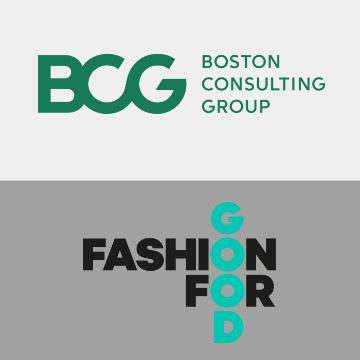
|
|
HOT OFF THE PRESS: Pioneering Analysis Estimates 300 Billion USD Is Needed By 2030...
.to develop and mainstream the sustainable apparel innovations required to meet key sustainability goals for the apparel industry. Listeners of this podcast series are familiar with our on-going focus on the crucial role finance and investment plays in enabling industry transformation. For the past two years SFA and Fashion for Good have been convening stakeholders to analyse this topic while calling for an analysis estimating how much financial investment is needed. Now we have it! A new report "Financing the Transformation in the Fashion industry" makes a strong case for what financial investment is needed. Michael spoke with two of the report's authors, Katrin Ley from Fashion for Good and Catharina Martinez-Pardo from BCG. Katrin and Catharina explain how they estimated the amount of finance required, what six barriers currently prevent access to this capital, and what six solutions should be implemented to overcome these barriers. If you truly want to understand how the innovation and finance space should work, this is the interview for you. It also reminds us that actors who are serious about transforming the industry need to be honest about what it will take, and will need to act to implement these solutions now.
|
|
|
|
MAKE YOUR CASE - Lewis Perkins Warns the Industry Not to Reinvent the Wheel
In this new segment - Make Your Case - Big Closets Small Planet provides industry experts and stakeholders a platform to argue for a particular position or perspective. In this episode, Lewis Perkins, President of the Apparel Impact Institute (AII), outlines his organisation's vision and advice for accelerating change in the apparel industry. He makes a case for why the duplication of efforts will slow industry progress, and warns against starting new initiatives when existing initiatives can deliver the impact needed. He also outlines the key steps he believes needs to happen to ensure significant progress is made. This is a thought provoking opinion piece, so have a listen and let us know what you think by contacting us at bigclosets@sustrainablefashionacademy.org.
Lewis Perkin's opinion does not reflect the official position of Big Closets Small Planet, or that of our supporting partners.
|
|
|
INSPIRING INNOVATION BITE - Will molecular bonding of fibers mean the end of polyester?
Here is a quick dose of inspiration! At Planet Textiles, Mike spoke to Spencer Null about Natural Fiber Welding''s breakthrough solution: enabling natural fibers like cotton to behave like polyester. Is this a game changer? It is if it means poor quality fibers can be upgraded to premium fibers... Listen to this bite size pod to get a quick lesson on cool chemistry, and get inspired by a potentially disruptive approach. This interview was recorded in June 2019.
|
|
|
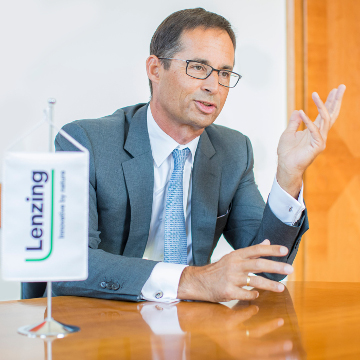
|
BUSINESS LEADERSHIP - The optimist CEO of Lenzing, Stefan Doboczky, weighs in on circular business models, short-termism & watchdogs.
Do you ever wonder how CEOs from some of our industry's most influential companies view the big social and environmental challenges we are facing today and the potential of business and innovation to adequately address these? TENCEL is a sponsor of this podcast series, so Michael took the chance and invited Lenzing's CEO Stefan Doboczky to discuss a wide range of topics in a recent interview. They touch upon Stefan's expectations of business leaders, the economics of sustainability investments, the circular model of Lenzing, the danger of short-termism, the conservative nature of the industry, climate change and forestry, and Stefan's personal view of a better world where "being something is more important than having something." If you ever wanted to peek into the mind of a global fiber company CEO, here is your chance.
This podcast is part of the #MakeItFeelRight campaign from TENCELT.
|
|
|
INNOVATION BITE - Can a simple phone call make invisible workers visible?
Dr. Lea Esterhuizen, an expert in gathering sensitive data from scared populations, believes we are unwittingly eating and wearing products that have likely been made or assembled using forced labor. Typically the apparel industry has used the "social audit" to address this problem. But social audits provide an incomplete picture of the situation. "There is a serious problem with worker invisibility". And that is why Lea started &Wider. Listen in to hear Lea describe her company's elegant method to enhance social auditing by gathering anonymous data from workers - making the invisible visible. To paraphrase Lea, fast fashion has been toxic, but it has also taught brands to be fast and innovative.
|
|
|
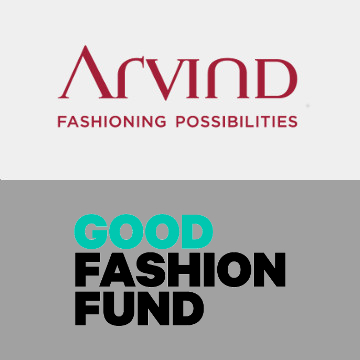
|
FINANCE & INNOVATION - Today's financing models don't cut it. We need new approaches that are structured in a way to help reduce risk for all parties involved.
Mike had the unique opportunity to sit down with an impact investor and a vertical manufacturer to share their real world views on what it takes to accelerate the uptake of sustainable apparel technologies in the apparel supply chain. Tanvi Karambelkar, representing the newly launched Good Fashion Fund, introduces the fund's pioneering approach for providing financing to manufacturers who want to invest in high impact but often disruptive technologies - which are very high risk. Abhishek Bansal, representing Arvind - a vertical manufacturer based in India, describes the challenge of implementing radically new technologies in practice. Listen in as these two experts break down the complexities, share their views on larger industry trends and highlight what needs to happen to transform the industry in the short and longer terms. "The problem with the textile industry is that it is still seen as a niche. But the problems we are solving with our fund are universal..." This is a great learning conversation, if we do say so ourselves! We hope you agree.
|
|
|
INDUSTRY UPDATE - Sound the alarm? Or have we overestimated the problems associated with microfibers & microplastics?!?
Between 2014 and 2016, an increasing number of journalists began reporting on disturbing new research showing that microfibers from synthetic garments were making their way from our washing machines into fish and other aquatic animals. Since then the textile industry has been scrambling to understand the extent of the problem and what our industry should do about it. It's now 2019, so what more have we learned since researchers first sounded the alarm? And what is our industry currently doing to address the challenge? Mike sat down with Sophie Mather from The Microfibre Consortium to get updated. Sophie has been working at the forefront of this issue, so there is no one better to provide a "state of play" on this topic. Listen for the first 25 minutes to get a comprehensive industry update and continue listening to dive deeper into the weeds.
|
|
|
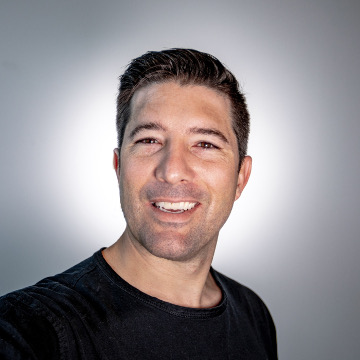
|
INNOVATION - The robots are coming! This development may be good for the environment, but is this the beginning of the end for garment workers in production countries?
The United States Military is required to make their clothing in the United States. But because very little clothing is produced in the United States today the U.S. Military needed to find alternative solutions. Enter Pete Santora, who launched SoftWear Automation 13 years ago to respond to this challenge. Today his technology, which automates sewing by using robotics, is ready to be scaled not only in the U.S., but around the world. In this fascinating, fast paced discussion Pete and Mike discuss the environmental benefits of automation, Pete's perspectives on whether his technology will make garment workers in production countries obsolete ("Robotics did not kill the automotive industry, tariffs did."), and why joint ventures and increased R&D investment are the only ways to accelerate the transformation of the apparel and textiles industry. Think google vs. the textile industry.
|
|
|

|
THOUGHT LEADERSHIP - A Sexy Update on the State of Chemical Management in Textiles Today. "As consumers, we''ve probably never been safer. As citizens, we have probably never been more unsafe..."
At Planet Textiles, Mike Schragger spoke with two of his favorite chemical and textiles experts, Phil Patterson and Linda Greer, about the state of the industry regarding chemical management in textiles today. If this does not sound sexy to you, then you don't know Phil and Linda! In addition to getting a primer on chemical history and good and bad chemicals (hint: salt and starch can be bad too, in case you were wondering.), Phil and Linda get "into the weeds" by addressing some of the most important issues debated today, such as: 1) does the high profile ZDHC initiative, which a significant number of key players have joined, have the potential to make a substantial difference; 2) if Greenpeace's sudden departure as a textile watchdog is a serious blow to those who want to accelerate change; and 3) where innovation is and should be taking place. They agree and disagree, and their answers will surprise and delight you - and hopefully make you smarter.
|
|
|
INNOVATION - Subcritical Water... what the "!#@%" is that= And what can it do for the apparel industry?
The founders of Tyton BioSciences are not personally interested in fashion, but that won''t stop them from using subcritical water to help solve the current textile-recycling conundrum. Mike Schragger talks to Luke Henning, CFO of Tyton, about their unique process for separating cellulose from polyester in blended materials.
|
|
|
INNOVATION - Apparel Industry = Waste.
Nearly 6 million tons of leftover textiles - the equivalent 18 million new clothes - are wasted in South East Asia and China alone. If we could remanufacture these textiles and reuse them, or ensure we only produce what we need when we need it, we may be able to significantly reduce the environmental impacts of clothing production and support the transition to a circular fashion system. Mike Schragger talks with Nin Castle from Reverse Resources and Ian Brown and Dale Floer from Scalable Garment Technologies about their groundbreaking solutions for turning mountains of textile waste into valuable resources and for reducing the amount of waste overall. Are you curious what their innovative solutions are? Think data mining, a textile waste marketplace and 3D printing inspired knitting machines!
|
|
|
INNOVATION IN CLIMATE ACTION - The H&M group boldly committed to becoming climate positive by 2040. But getting there requires unprecedented leadership and change. Is the H&M group in over its head? And what can the H&M group's journey teach us about the larger challenges and opportunities facing the industry overall?
In a refreshingly candid and constructive interview, Mike spoke with the H&M group's Kim H?llstr?m about what has happened since the company first made their important public climate commitment and what we can learn from the H&M group's insights and experiences in order to help the entire apparel industry reduce its emissions in line with a 1,5 degree warming pathway. Considering we are in a state of emergency when it comes to global heating, this is an interview you can't afford to miss.
|
|
|
INNOVATION & CLIMATE ACTION - What if using your credit card to purchase clothing could actually help combat global warming?
If we knew the specific climate impacts of each of our purchases, such as the greenhouse gas emissions of our favourite dress or shoes, would we make more climate friendly purchases? And would the companies who make fashion and apparel products - now knowing that we know the climate impacts of our clothing purchases - offer more climate friendly options? In other words, can consumption and effective climate action go hand-in-hand or are we kidding ourselves? Mike spoke with Johan Pihl and Jacob Odqvist, two entrepreneurs who are developing a number of solutions that they say will make it easier for you and me - as consumers - to fight climate change.
|
|
|
INNOVATION - Edwin Keh thinks that to solve the fashion industry's sustainability challenges we need to radically rethink R&D.
Mike speaks with Edwin Keh, CEO of the Hong Kong Research Institute of Textiles & Apparel Limited, about his team''s pioneering and surprising breakthrough in the area of textile recycling, his deep conviction that to accelerate the development and uptake of sustainable solutions our industry needs to do R&D very differently, and why industry innovation - for its own sake - is misguided. And if that''s not interesting enough for you, the "professor," as Mike refers to him, also weighs in on the historical relationship between China and "the West", the fundamental limitations of today''s business models, and why he has become the "favorite son-in-law."
|
|
|
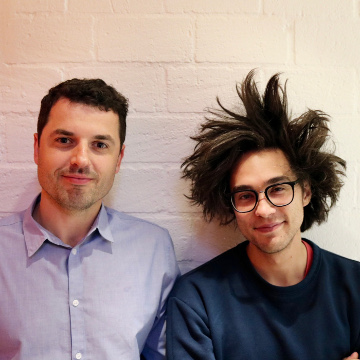
|
INNOVATION - Do you want the inside scoop about which sustainable apparel innovations are hot and which are not? Then ask two passionate, albeit a bit wacky, business development experts for advice.
Do you get excited when hearing about breakthrough sustainability apparel innovations - such as fibers made from fruit waste or blockchain technology being used to track and trace the origin and content of your clothing? Do you sometimes wonder if these breakthroughs are too good to be true? Greg Stillman and Rogier van Mazijk work with visionary entrepreneurs and impact investors every day. So Mike asked them for their perspectives on the hottest sustainable fashion innovations and business ideas right now. These guys are smart, so it is no surprise that Mike got more input than he bargained for. Greg and Rogier also took the opportunity to sound off on a broader range of crucial topics, including what the fashion industry can learn from other industries; the major opportunities and barriers to scaling many of these promising ideas; and what they get inspired by. If you need help orienting yourself to the field of sustainable apparel innovation, then this podcast is essential listening for you.
|
|
|
THOUGHT LEADERSHIP - Jason Kibbey: "Beware of the ''Circular Fairies''!"
Jason Kibbey, CEO of the Sustainable Apparel Coalition (SAC), has been leading one of the most important sustainability trade organizations in the apparel sector for the past 8 years. Jason joins Mike Schragger online from his office in San Francisco to chat about the progress the apparel sector is making, his assessment of the SAC to date, and his warning that a circular vision for the apparel sector can become a distraction if it prevents the industry from investing in proven solutions that can be implemented today. This lengthy interview is full of nuanced opinions and inspiration for you sustainability nerds and practitioners, so pour yourself a cup of coffee, turn off your alerts, and enjoy.
|
|
|
FINANCE & INNOVATION - Show me the money!
Sustainable solutions are emerging but is there enough investment capital available to ensure they succeed? Mike Schragger talks with Fashion for Good's Rogier van Mazijk about the innovation process, the exciting sustainable solutions that could save the fashion industry, and the need for billions, if not trillions of dollars to ensure these innovations can succeed. Investors, innovators, sustainability practitioners and nerds - you will love this, and Rogier is a joy to listen to!
|
|
|
THOUGHT LEADERSHIP - Linda Greer believes in radical transparency!
Linda Greer, Senior Scientist at the National Resources Defense Council (NRDC) joins Mike Schragger online from her office in Washington, D.C. to share her experiences working to improve the apparel sector, her initial ideas for creating a climate roadmap for apparel and her conviction that transparency as it is practiced today is not effective enough. This lengthy interview is full of nuanced opinions and advice for you sustainability change agents, so pour yourself a cup of tea, turn off your alerts, and enjoy this brain candy.
|
|
|
INNOVATION - Akshay Sethi is convinced that all of our clothes will be made from recycled materials by 2030.
Mike Schragger talks to the smart and savvy Akshay Sethi about the science behind polyester recycling, the rapid development of the his company Moral Fiber, the steep learning curve he has faced when starting a company directly after graduating from university, and his conviction that all of our clothes will be made by recycled materials by 2030.
|
|
|
CLIMATE CHANGE - Are you and your company serious about helping to solve the global climate crisis?
Then Cynthia Cummis & Michael Sadowski from the World Resources Institute think you should start by setting science-based targets for reducing your climate emissions. Cynthia & Michael join Mike Schragger online from their offices in Washington, D.C. and Portland, Oregon to discuss the apparel industry's surprising impact on the climate, the Science-Based Targets Initiative they are leading for the apparel sector, and what they think needs to happen to transform the sector so it operates within a 2 degree Celsius warming pathway as outlined by the IPCC.
|
|
|
INNOVATION - Style Lend & Good On You are betting that they can improve your consumer behavior.
What if customers could improve the environment and make money by renting out their clothes simultaneously? And whom do you trust to provide an honest assessment about the ethical and environmental performance of apparel products and the companies behind them? Mike Schragger talks to Lona Alia from Style Lend and Sandra Capponi from Good On You, two entrepreneurs who believe their solutions will empower customers and drive change.
|
|
|
Outing the Fashion Industry - A Crash Course in Sustainable Fashion
If you are new to the field of sustainability and/or fashion and apparel and want to quickly up get up to speed, then this podcast is for you. Mike Schragger, the host of Big Closets Small Planet, explains why we need to completely transform how we produce, use and dispose of fashion and apparel - before it's too late.
|
|
|
|
Make sure to subscribe to Big Closets Small Planet on the podcast platform of your choice in order to get automatic updates whenever new episodes are released:
|
|
|
Big Closets Small Planet is available on Apple Podcasts - click here to subscribe!
|
|
|
|
Click here to follow Big Closets Small Planet on Spotify!
|
|
|
|
Big Closets Small Planet is now also on Google Podcasts - subscribe here!
|
|
|
|
Big Closets Small Planet is available on Stitcher - click here to subscribe!
|
|
|
|
If you are enjoying listening to this podcast, make sure to follow our new Big Closets Small Planet Instagram for information and updates about new episodes!
|
|
|
Big Closets Small Planet is supported by Laudes Foundation, The Rylander Foundation, and Tencel.
|
|
|
Big Closets Small Planet is produced in collaboration with
Ecotextile News.
|
|
|
|
Do you have ideas to help transform the apparel industry, or opinions about the topics or insights made by the host or guests? Feel free to reach out to us with your ideas, comments or feedback at bigclosets@sustainablefashionacademy.org.
|
|
|
|
|




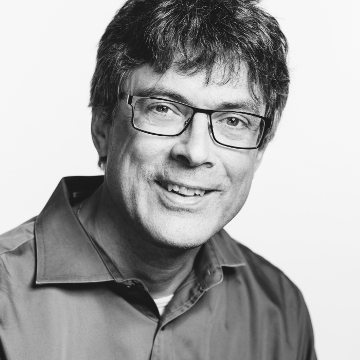



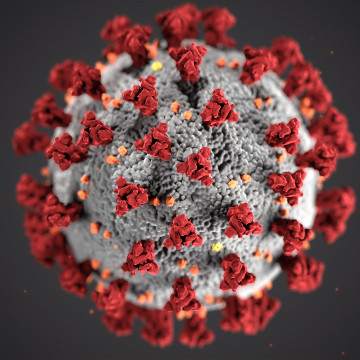

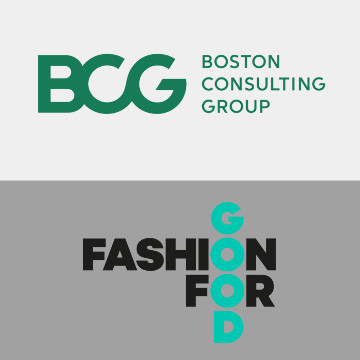
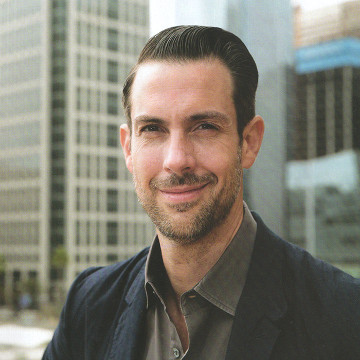
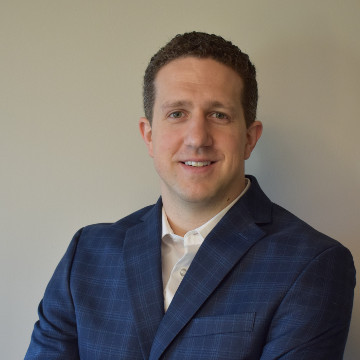
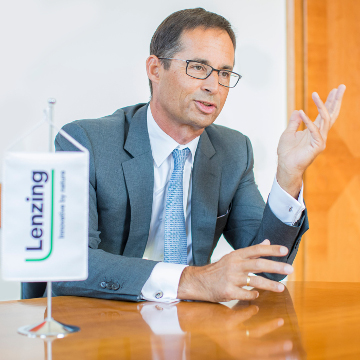
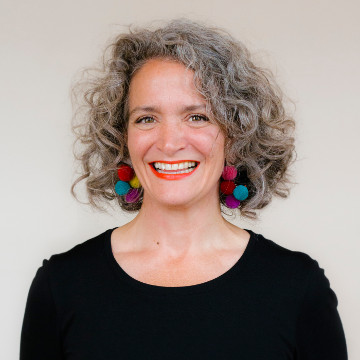
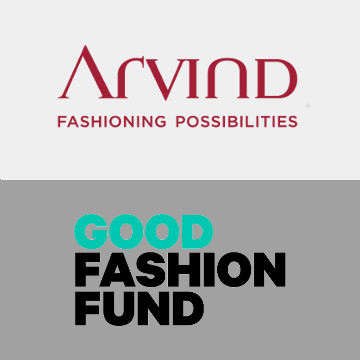
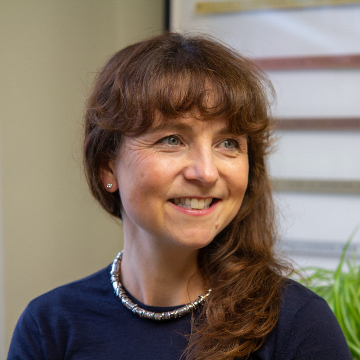
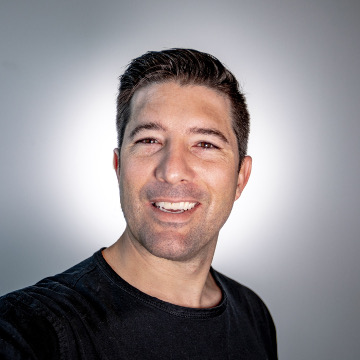

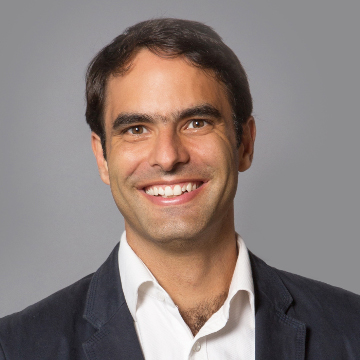

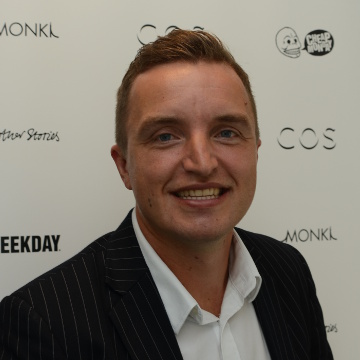
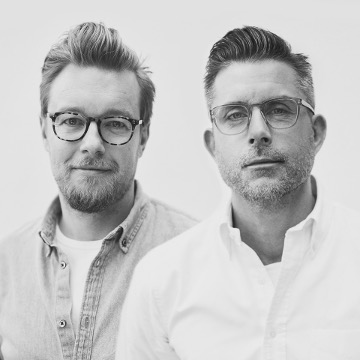

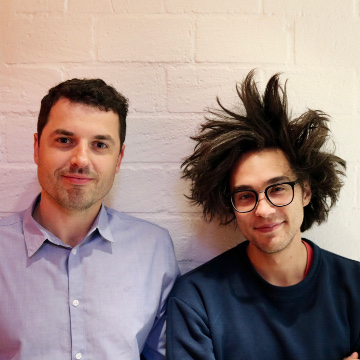

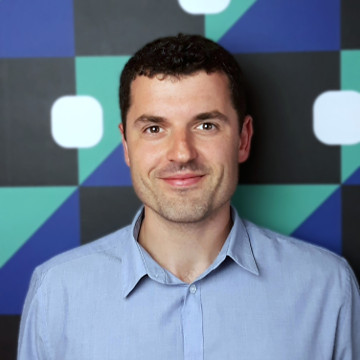
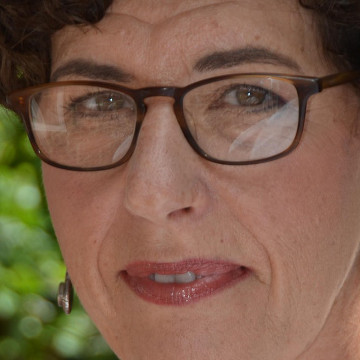

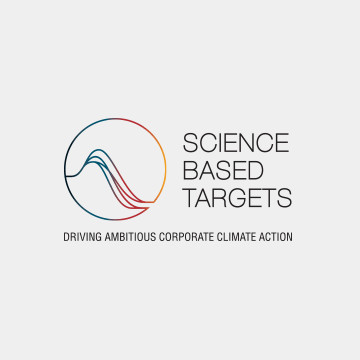

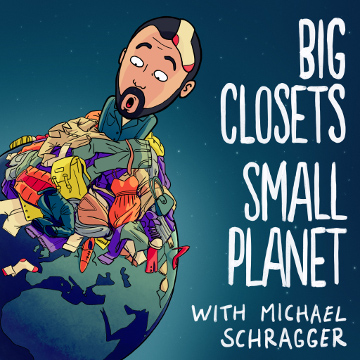






 Arts and Entertainment
Arts and Entertainment Business and Industry
Business and Industry Computer and Electronics
Computer and Electronics Games
Games Health
Health Internet and Telecom
Internet and Telecom Shopping
Shopping Sports
Sports Travel
Travel More
More